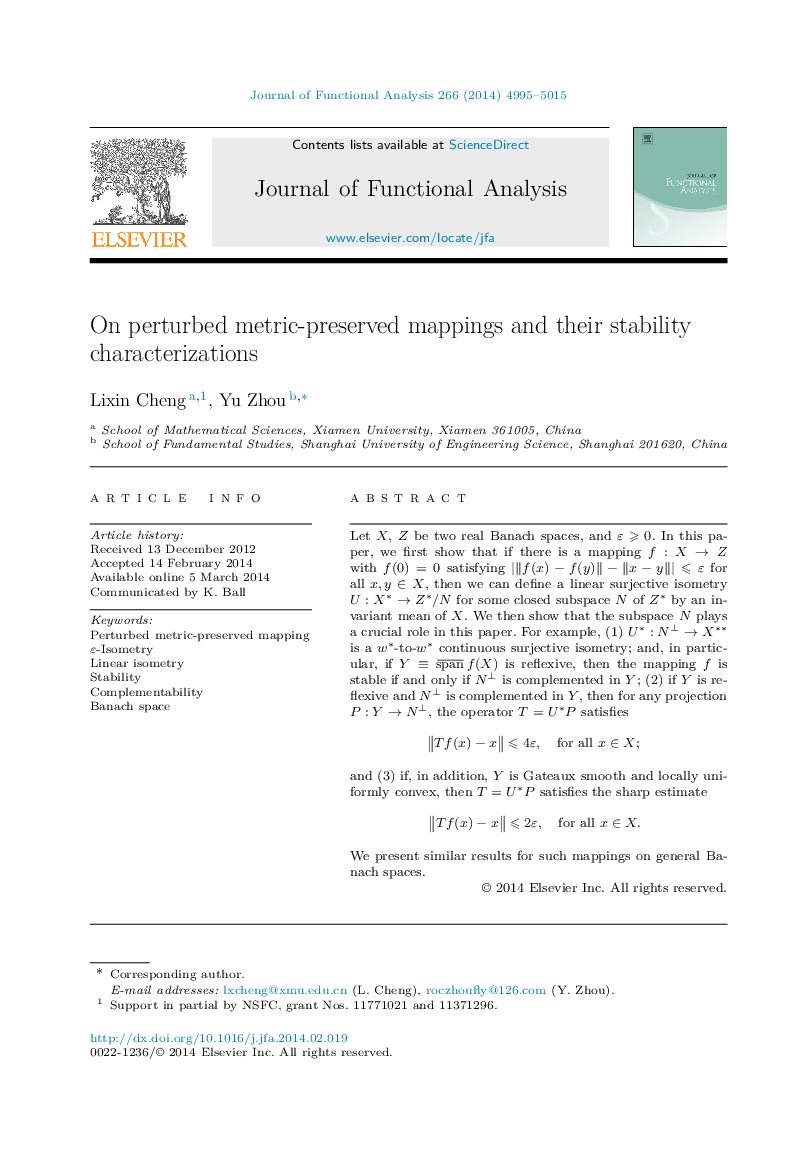| Article ID | Journal | Published Year | Pages | File Type |
|---|---|---|---|---|
| 4590154 | Journal of Functional Analysis | 2014 | 21 Pages |
Let X, Z be two real Banach spaces, and ε⩾0ε⩾0. In this paper, we first show that if there is a mapping f:X→Zf:X→Z with f(0)=0f(0)=0 satisfying |‖f(x)−f(y)‖−‖x−y‖|⩽ε|‖f(x)−f(y)‖−‖x−y‖|⩽ε for all x,y∈Xx,y∈X, then we can define a linear surjective isometry U:X⁎→Z⁎/NU:X⁎→Z⁎/N for some closed subspace N of Z⁎Z⁎ by an invariant mean of X. We then show that the subspace N plays a crucial role in this paper. For example, (1) U⁎:N⊥→X⁎⁎U⁎:N⊥→X⁎⁎ is a w⁎w⁎-to-w⁎w⁎ continuous surjective isometry; and, in particular, if Y≡span¯f(X) is reflexive, then the mapping f is stable if and only if N⊥N⊥ is complemented in Y; (2) if Y is reflexive and N⊥N⊥ is complemented in Y , then for any projection P:Y→N⊥P:Y→N⊥, the operator T=U⁎PT=U⁎P satisfies‖Tf(x)−x‖⩽4ε,for all x∈X; and (3) if, in addition, Y is Gateaux smooth and locally uniformly convex, then T=U⁎PT=U⁎P satisfies the sharp estimate‖Tf(x)−x‖⩽2ε,for all x∈X. We present similar results for such mappings on general Banach spaces.
